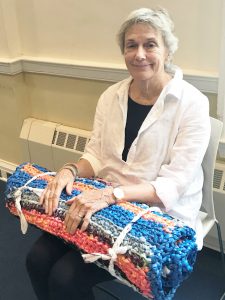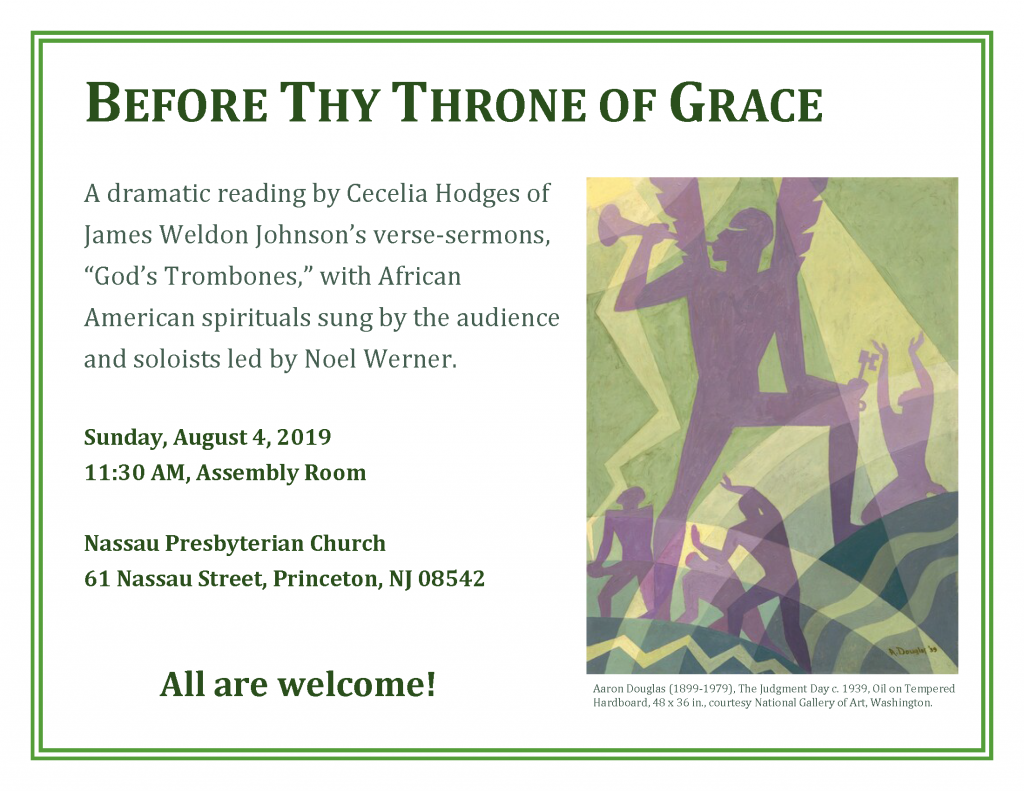Sign up during Fellowship on Sunday mornings beginning September 8, or online after Monday, September 9:
Exodus: Wilderness Formation
Do a deep dive into Exodus! Read the stories, remember the events, and revisit the characters that are formative to our faith. Each week we will focus on a handful of chapters and learn how God forms a people and the people, in turn, take leadership in shaping their relationship with God. Drs. Jacqueline Lapsley and Anne Stewart will be leading an Adult Education series, October 6 – November 3, on Exodus. Pastor Dave Davis will be preaching the same passages in worship those Sundays.
[ezcol_1third]Exodus: Wilderness Formation[/ezcol_1third] [ezcol_2third_end]Mondays, Oct. 7 to Nov. 4, 12:00-1:15 p.m.
Corrie Berg, leader
Berg Home, Princeton
Light lunch (soup & bread) provided[/ezcol_2third_end]
[ezcol_1third][/ezcol_1third] [ezcol_2third_end]Wednesdays, Oct. 16 to Nov. 13, 6:30-7:30 a.m.
Dave Davis, leader
Conference Room, Nassau Presbyterian Church
Bring your own breakfast (coffee & tea provided)[/ezcol_2third_end]
[ezcol_1third][/ezcol_1third] [ezcol_2third_end]Wednesdays, Oct. 9 to Nov. 6, 1:30-3:00 p.m.
Kathie Sakenfeld, leader
Sakenfeld Home, Skillman[/ezcol_2third_end]
[ezcol_1third]Exodus: Wilderness Formation
(w/additional reading)[/ezcol_1third] [ezcol_2third_end]Tuesdays, Oct. 8 to Nov. 5, 7:30-9:00 p.m.
Boethius‘s Consolation of Philosophy
Mark Edwards, leader
Edwards Home, Kingston[/ezcol_2third_end]
[ezcol_1third][/ezcol_1third] [ezcol_2third_end]Wednesdays, Oct. 2 to Oct. 30, 12:00-1:00 p.m.
Boesak and DeYoung’s Radical Reconciliation
Len Scales, leader
Conference Room, Nassau Presbyterian Church
Bring your own lunch (coffee & tea provided)[/ezcol_2third_end]
Additional Groups
[ezcol_1third][/ezcol_1third] [ezcol_2third_end]Mondays, Oct. 7-Nov. 4, 7:30-9:00pm
Pastrix by Nadia Bolz-Weber
Marshall McKnight, leader
Conference Room, Nassau Presbyterian Church[/ezcol_2third_end]
[ezcol_1third][/ezcol_1third] [ezcol_2third_end]Tuesdays, Oct. 8-Nov. 5, 7:00-8:30pm
The Chronicles of Narnia by C.S. Lewis
Jade Hage, leader
Room 304, Nassau Presbyterian Church[/ezcol_2third_end]
[ezcol_1third][/ezcol_1third] [ezcol_2third_end]Thursdays, Oct. 3 to Nov. 7, 7:30-9:00 p.m.
Dressing and Keeping the Garden: Photographing Nature
Ned Walthall, leader
Conference Room, Nassau Presbyterian Church[/ezcol_2third_end]
[/timed]





